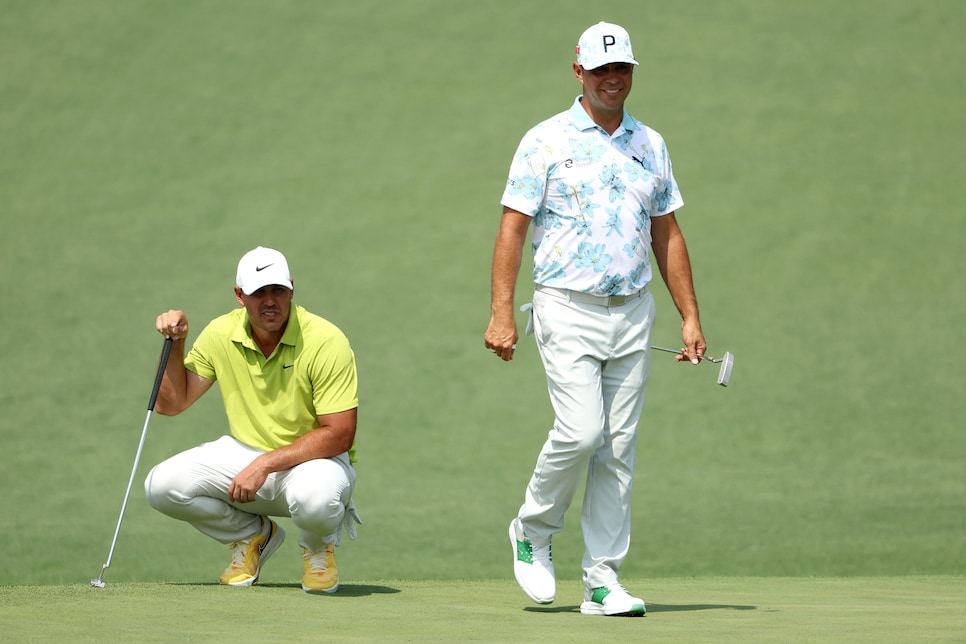In the wake of the Brooks Koepka–Gary Woodland incident during the first round of the Masters, it might be a good time to review what the Rules of Golf has to say about giving or taking advice during a round. If you missed it, Koepka’s caddie, Ricky Elliot, appeared to signal to Gary Woodland’s team on the 15th hole that Koepka had used a 5-iron for his second shot. The move raised eyebrows, and the Masters Tournament committee looked into the matter before Koepka signed for his seven-under 65.
“Following the completion of Brooks Koepka’s round, the committee questioned his caddie and others in the group about a possible incident on No.15. All involved were adamant that no advice was given or requested. Consequently, the committee determined that there was no breach of the rules.”

Giving or taking advice during a round of golf is a violation of Rule 10.2 and comes with a two-shot penalty in strokeplay or loss of hole in matchplay. Things such as asking what club another golfer used before you hit a shot, or how to play a hole you’re not familiar with, are considered advice. You’ll also be penalised for non-verbal communications like holding up a number of fingers to indicate to someone that it’s a “three-club wind” or setting something down on the ground to help with aiming.
To be clear, you can ask anyone questions like, “Am I allowed to ground my club in a bunker?” Or, “Is the wind behind us?” Or, “Is the flag back, right or middle?” Those things are considered public information and are not against the rules.
But there are countless other scenarios during a round where you might wonder if Rule 10.2 should be applied. In the inaugural LIV Golf tournament last June, Jinichiro Kozuma was nearly hit with a two-shot penalty because his caddie had signalled to Kozuma’s playing partner, J.C. Ritchie, what club his player was using. Luckily for the caddie, he had signalled after Ritchie already had looked in Kozuma’s bag and knew what club was missing.
If you’re wondering about other actions that fall short of being called advice under Rule 10.2, a golfer could blurt out, “I can’t believe my 6-iron came up short!” and it wouldn’t be considered a penalty if there was no intent to influence the ensuing play of others on that hole. You’re also OK to ask a player what club they used on a completed hole – even if you’re about to play a similar-length hole.
And Ritchie’s actions in the LIV event should have helped you answer the question in this story’s headline. While you can’t physically go over to another player’s bag and start rummaging through it to figure how what club that person just used, there’s nothing illegal about watching the club get replaced (although most people will tell you it’s pretty poor etiquette if you do it in an obvious way).
MORE GOLF DIGEST RULES REVIEWS:
I’m on the green, my opponent is not. Who’s away?
What do I do if my golf ball is stuck in a tree?
I conceded a putt. My opponent putted anyway and missed. Is that a penalty?
What is casual water and how do I play around it?
I thought my ball was lost and put another in play then found my first ball… which ball counts?
What happens if I can’t tell my provisional ball from my original?
What exactly is an embedded ball?
How do I find my ‘nearest point of relief’?
